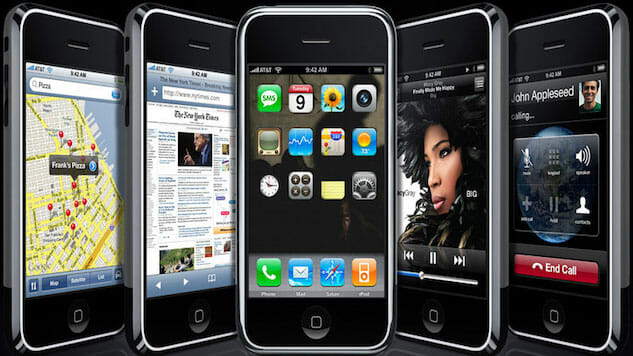
We could go on all day about the conveniences of technology. You can pick up your phone and pay your credit card bill, check the weather, text your mom and post a snarky Facebook status in the same millisecond thanks to engineers and app designers around the world.
However, this convenience has made us all a bit dependent on our devices. What would happen if you couldn’t use your phone to do everything you use it for now? And how would the rest of the world react to Internet outages, device malfunctions and everything else in a tech addict’s recurring nightmare?
Let’s find out.
Your Phone Dies. Now What?
You’ve surely been without a phone for a few hours when you didn’t charge it enough before going out. How did you feel without access to the internet at your fingertips? Chances are, you hated it. You may have even felt compelled to click your phone multiple times, checking for messages in vain since, you know, you didn’t have any battery left to actually use your device.
Astoundingly: one fifth of Americans report they’re online ‘almost constantly’, according to a 2015 survey by the Pew Research Center. With such an obvious dependence and habit of checking devices multiple times within minutes, a loss of Internet and phone use could spark serious outrage.
In fact, one professor at Stanford University tried to have his students log off from the Internet for a full 48 hours just so they could see life on the other side. You can imagine his tactics sparked outrage—how could university students, tethered to technology both academically and socially, log off for so long? The professor cancelled the assignment in the end.
The experiment shed light on just how dependent we are on technology—and just how woefully unprepared we are to go without it. One professor at Michigan State University, William Dutton, said to the BBC: “One of the biggest problems with the internet today is that people take it for granted—yet they don’t understand the degree to which we’ve allowed it to infiltrate almost every aspect of our lives. They don’t even think about not having access to it.”
We have to think about life with our phones beyond texting, e-mailing and social media-ing, too: we have so many apps that keep our day-to-day lives running. For example, you might have an app on your phone that controls the heating and cooling in your home. Some iterations of this technology can even help you save money on energy costs. Would you be able to do the same manually? It’s hard to believe any of us would.
The World Around You Will Stop, Too
Clearly, we’re personally unprepared to handle a complete loss of phone and Internet. But the world at large has also proven it’s not ready for a massive loss of connectivity, either.
Two years ago, a major string of outages proved just how woefully unprepared the world is for such an event. A three-part outage struck the New York Stock Exchange, The Wall Street Journal and United Airlines.
The NYSE took three-and-a-half hours to get back to trading, which clearly affected the floor’s incredibly fast-paced way of doing business. The Wall Street Journal’s site may have folded under pressure as frantic stockholders went to see what was happening to their shares. And United Airlines saw flights grounded for almost two hours, ending in delays and cancellations across the board.
The major event—ruled by the FBI to be coincidental and not a result of hacking—showed just how unprepared businesses and institutions are for similar outages. It proved that everyone, both individuals and organizations, should have a plan in place to get themselves back online, and what they should do in the interim. This is especially true now that we’ve let our computers and phones take care of so much with the press of a button.
“The problem is humans can’t keep up with all the technology they have created,” said Avivah Litan to Crain’s. “It’s becoming unmanageable by the human brain. Our best hope may be that computers eventually will become smart enough to maintain themselves.”
Until then, though, we have to be ready for the inevitable: an outage that puts us in control. Are you ready?
Photo: Micyaotl Garcia, CC-BY
Anum Yoon is Paste’s Unplugged columnist and a Philly-based blogger who founded Current On Currency.